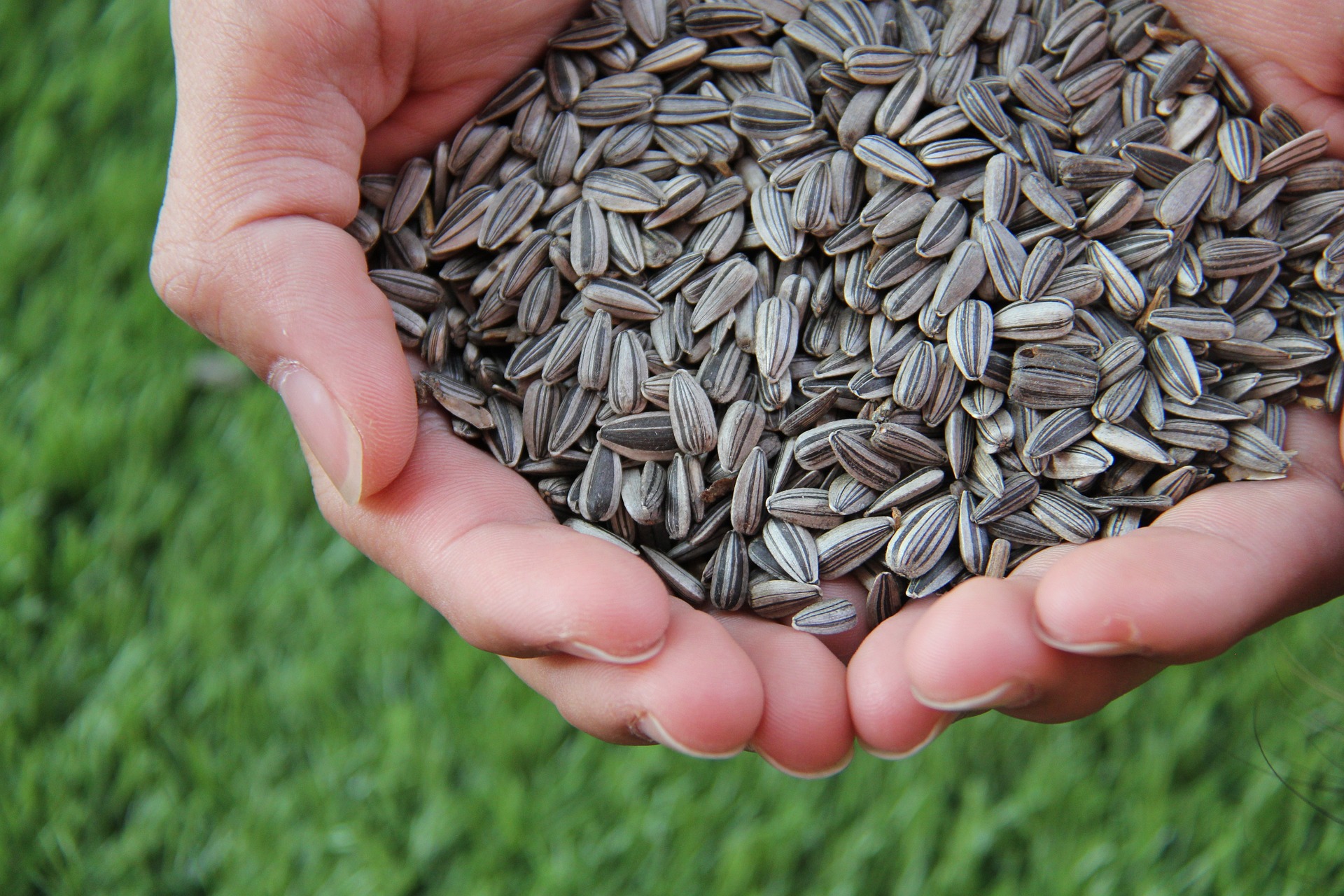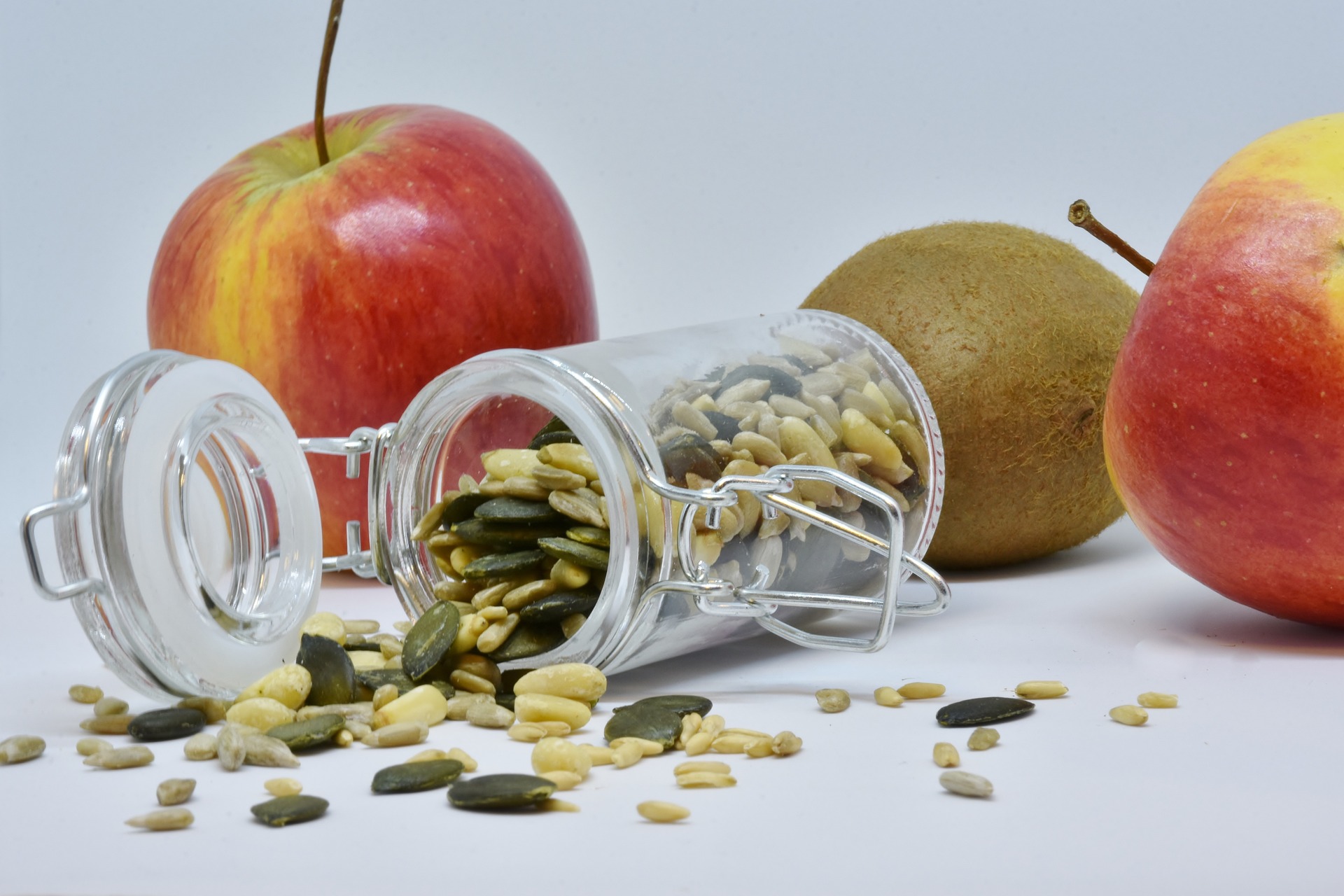Sunflower Seeds: A Nutritious and Versatile Snack

Sunflower seeds, with their crunchy texture and delightful flavor, are a popular snack enjoyed by many. Not only are they delicious, but they are also packed with essential nutrients that can benefit your overall health. In this article, we will explore the nutritional value of sunflower seeds, their potential health benefits, and creative ways to incorporate them into your diet. Let’s dive into the world of sunflower seeds and discover why they are a fantastic addition to your snacking routine!
Introduction
Sunflower seeds, scientifically known as Helianthus annuus, are the edible seeds of the sunflower plant. They have been cultivated for centuries and are enjoyed for their versatility and nutritional benefits. Whether you eat them as a snack, add them to your meals, or use them in recipes, sunflower seeds are a delicious and nutritious choice.
Nutritional Composition of Sunflower Seeds
Sunflower seeds are a nutrient-dense food, providing a wide array of vitamins, minerals, healthy fats, and fiber. A one-ounce (28-gram) serving of sunflower seeds contains approximately:
– Calories: 164
– Protein: 5.5 grams
– Fat: 14 grams
– Carbohydrates: 6 grams
– Fiber: 2.4 grams
– Vitamin E: 7.4 milligrams (37% of the Recommended Daily Intake)
– Thiamine (Vitamin B1): 0.4 milligrams (28% of the RDI)
– Magnesium: 116 milligrams (29% of the RDI)
– Selenium: 18.6 micrograms (27% of the RDI)
– Copper: 0.4 milligrams (19% of the RDI)
Health Benefits of Sunflower Seeds
Rich in Healthy Fats
Sunflower seeds are a good source of healthy fats, including monounsaturated and polyunsaturated fats. These fats, particularly the polyunsaturated fats like omega-6 fatty acids, are essential for maintaining healthy cell membranes, supporting brain function, and reducing inflammation in the body.
Excellent Source of Vitamin E
Sunflower seeds are one of the best natural sources of vitamin E, a potent antioxidant that plays a crucial role in protecting cells from damage caused by free radicals. Vitamin E is known for its skin-boosting properties and its potential to support immune function and cardiovascular health.
Abundant in Minerals Sunflower seeds
are rich in various minerals that are essential for optimal health. Magnesium, copper, and selenium are particularly abundant in sunflower seeds. Magnesium supports bone health, energy production, and muscle function. Copper is important for the production of red blood cells and collagen formation, while selenium acts as an antioxidant and supports thyroid function.
High in Fiber
Sunflower seeds are a good source of dietary fiber, which is essential for a healthy digestive system. Fiber helps regulate bowel movements, promotes satiety, and supports the growth of beneficial gut bacteria. Consuming fiber-rich foods like sunflower seeds can contribute to better digestion and overall gut health.
Promote Heart Health
The healthy fats and nutrients present in sunflower seeds contribute to heart health. The monounsaturated and polyunsaturated fats in these seeds have been associated with lower LDL (bad) cholesterol levels and reduced risk of heart disease. Additionally, the high vitamin E content acts as an antioxidant, helping to prevent oxidative damage to the cells of the cardiovascular system.
Ways to Enjoy Sunflower Seeds
Sunflower seeds can be enjoyed in various ways, making them a versatile snack and ingredient. Here are some popular ways to enjoy sunflower seeds:
Roasted and Salted
Roasted and salted sunflower seeds are a classic and convenient snack. They can be easily found in stores or prepared at home by roasting raw sunflower seeds in the oven with a sprinkle of salt. Roasting enhances their nutty flavor and provides a satisfying crunch.
Sprinkled on Salads and Yogurt
Add a crunchy texture and a nutritious boost to your salads or yogurt by sprinkling sunflower seeds on top. They complement a variety of flavors and can be combined with other nuts, fruits, and vegetables for a delicious and nutritious combination.
Sunflower Seed Butter
Sunflower seed butter is a nutritious alternative to nut butter for those with allergies or sensitivities. It can be used as a spread on toast, sandwiches, or as a dip for fruits and vegetables. You can make sunflower seed butter at home by blending roasted sunflower seeds until smooth and creamy.
Baked Goods and Trail Mixes
Add sunflower seeds to your favorite baked goods, such as bread, muffins, or cookies, for added texture and nutrition. They can also be included in homemade trail mixes along with dried fruits, nuts, and dark chocolate for a satisfying and energy-boosting snack.
Homemade Energy Bars
Make your own nutritious energy bars by combining sunflower seeds with oats, dried fruits, honey, and other ingredients of your choice. Press the mixture into a pan, refrigerate until firm, and cut into bars for a convenient and wholesome snack on the go.
Incorporating Sunflower Seeds Into Your Diet
Recipes
Here are a few recipe ideas to help you incorporate sunflower seeds into your diet:
– Sunflower Seed Pesto: Blend sunflower seeds, fresh basil, garlic, Parmesan cheese, olive oil, and a squeeze of lemon juice to make a delicious and nutty pesto sauce. Use it as a spread, pasta sauce, or dressing for salads.
– Sunflower Seed-Crusted Chicken: Coat chicken breasts with ground sunflower seeds, breadcrumbs, and seasonings. Bake until golden brown and enjoy a crispy and flavorful chicken dish.
– Sunflower Seed Granola: Combine oats, sunflower seeds, honey, coconut oil, and your favorite mix-ins like dried fruits and nuts. Bake until golden and crunchy for a homemade granola that’s perfect for breakfast or snacking.
Meal Ideas
Here are a few meal ideas that incorporate sunflower seeds:
– Breakfast: Sprinkle sunflower seeds on top of your morning bowl of yogurt or oatmeal for added crunch and nutrition. You can also blend sunflower seeds into your smoothies for an extra boost of protein and healthy fats.
– Lunch: Add sunflower seeds to your salads for a satisfying and nutritious meal. Combine mixed greens, roasted vegetables, grilled chicken, and a sprinkle of sunflower seeds. Drizzle with your favorite dressing for a flavorful and filling lunch.
– Snack: Create a homemade trail mix with sunflower seeds, dried fruits, dark chocolate, and other nuts. Portion it into snack-sized bags for a convenient and nourishing on-the-go snack.
– Dinner: Incorporate sunflower seeds into your stir-fries or sautéed vegetables. Toast sunflower seeds in a pan and sprinkle them over your vegetable dishes for added flavor and texture.
– Dessert: Use sunflower seeds in your homemade baked goods, such as cookies or muffins. They can add a delightful crunch and nutty flavor to your sweet treats.
Conclusion
Sunflower seeds are more than just a tasty snack; they are a nutrient-packed addition to your diet. With their abundance of healthy fats, vitamins, minerals, and fiber, sunflower seeds offer numerous health benefits. Whether enjoyed on their own, added to salads, incorporated into recipes, or used as a topping, sunflower seeds provide a delicious and convenient way to boost the nutritional value of your meals and snacks.
FAQs
Q1: Can sunflower seeds cause allergies?
While rare, some individuals may have allergies to sunflower seeds. If you have a known allergy to sunflower seeds or related plants, it’s best to avoid them and consult with a healthcare professional.
Q2: Can sunflower seeds help with weight management?
Sunflower seeds can be a part of a healthy diet for weight management. They are nutrient-dense, provide healthy fats and fiber, and can contribute to feelings of satiety. However, moderation is key due to their calorie content.
Q3: Can sunflower seeds be stored long-term?
Sunflower seeds can be stored for several months in a cool, dry place in airtight containers. For longer-term storage, it’s best to keep them in the refrigerator or freezer to maintain freshness.
Q4: Are there different types of sunflower seeds?
Yes, there are different varieties of sunflower seeds, including those with striped shells and those with black shells. The most common variety for snacking is the striped shell sunflower seed.
Q5: Can sunflower seeds be sprouted?
Yes, sunflower seeds can be sprouted by soaking them in water for a few hours and then rinsing and draining them multiple times a day. Sprouted sunflower seeds can be enjoyed as a nutritious addition to salads, sandwiches, or wraps.





